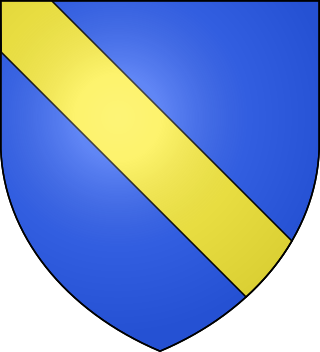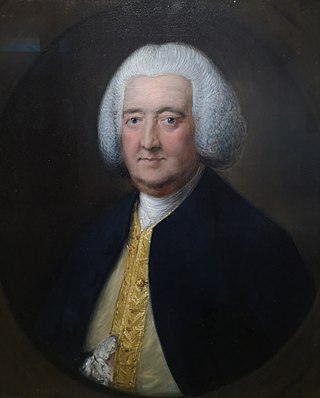Related Research Articles

The Leominster Canal was an English canal which ran for just over 18 miles from Mamble to Leominster through 16 locks and a number of tunnels, some of which suffered engineering problems even before the canal opened. Originally, the canal was part of a much more ambitious plan to run 46 miles from Stourport to Kington.
Thomas, Tom or Tommy White may refer to:

William le Scrope, Earl of Wiltshire, King of Mann was a close supporter of King Richard II of England. He was a second son of Richard le Scrope, 1st Baron Scrope of Bolton.

Leominster was a parliamentary constituency represented until 1707 in the House of Commons of England, then until 1801 in that of Great Britain, and finally until 2010, when it disappeared in boundary changes, in the Parliament of the United Kingdom.

North Herefordshire is a constituency represented in the House of Commons of the UK Parliament since 2024 by Ellie Chowns of the Green Party of England and Wales. It is the first Green seat in the West Midlands region.
A 1912 by-election was held for the British House of Commons constituency of Leominster on 18 March 1912. The seat had become vacant on the resignation of the Conservative Member of Parliament Sir James Rankin, 1st Baronet, who had held the seat since the January 1910 general election, with a majority of 831, increased to 1,169 in the second general election of November that year.

Sir Thomas Coningsby was an English soldier and Member of Parliament, notable for his diary of military action in France in 1591, and his feuds over local representation in Herefordshire.
Edward Harley was a British Tory politician. He sat as Member of Parliament for twenty seven years supporting the group led by his brother, Robert Harley. He was also Auditor of the Imprests. Because of this, and to distinguish him from other family members of the same name, is frequently known as Auditor Harley.
This is a list of Sheriffs and, since 1998, High Sheriffs of Herefordshire

Robert Harley was a British Member of Parliament.
Sir John Cheyne or Cheney was a Member of Parliament and briefly the initial Speaker of the House of Commons of England in the Parliament of October 1399, summoned by the newly acclaimed Henry IV.
Leominster and Kington Railway was one of four branches which served the Welsh Marches border town of Kington, Herefordshire.
Thomas Coningsby II, of Hampton Wafer, Herefordshire was an English politician.
Thomas Coningsby I, of Leominster, was an English politician.
Thomas Hood of Leominster, Herefordshire, was an English politician.
John Hood, of Leominster, Herefordshire, was an English politician.
Thomas Barber, born in Ireland and then settled in Leominster, Herefordshire, was an English politician.
Thomas Reynold, of Leominster, Herefordshire, was an English politician.
John Hood, of Leominster, Herefordshire, was an English politician.